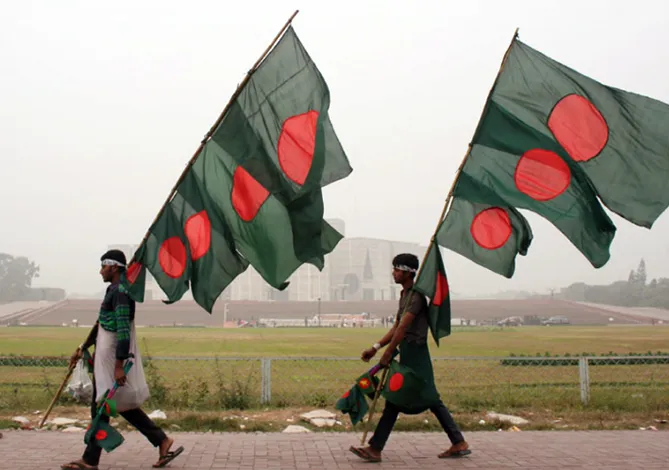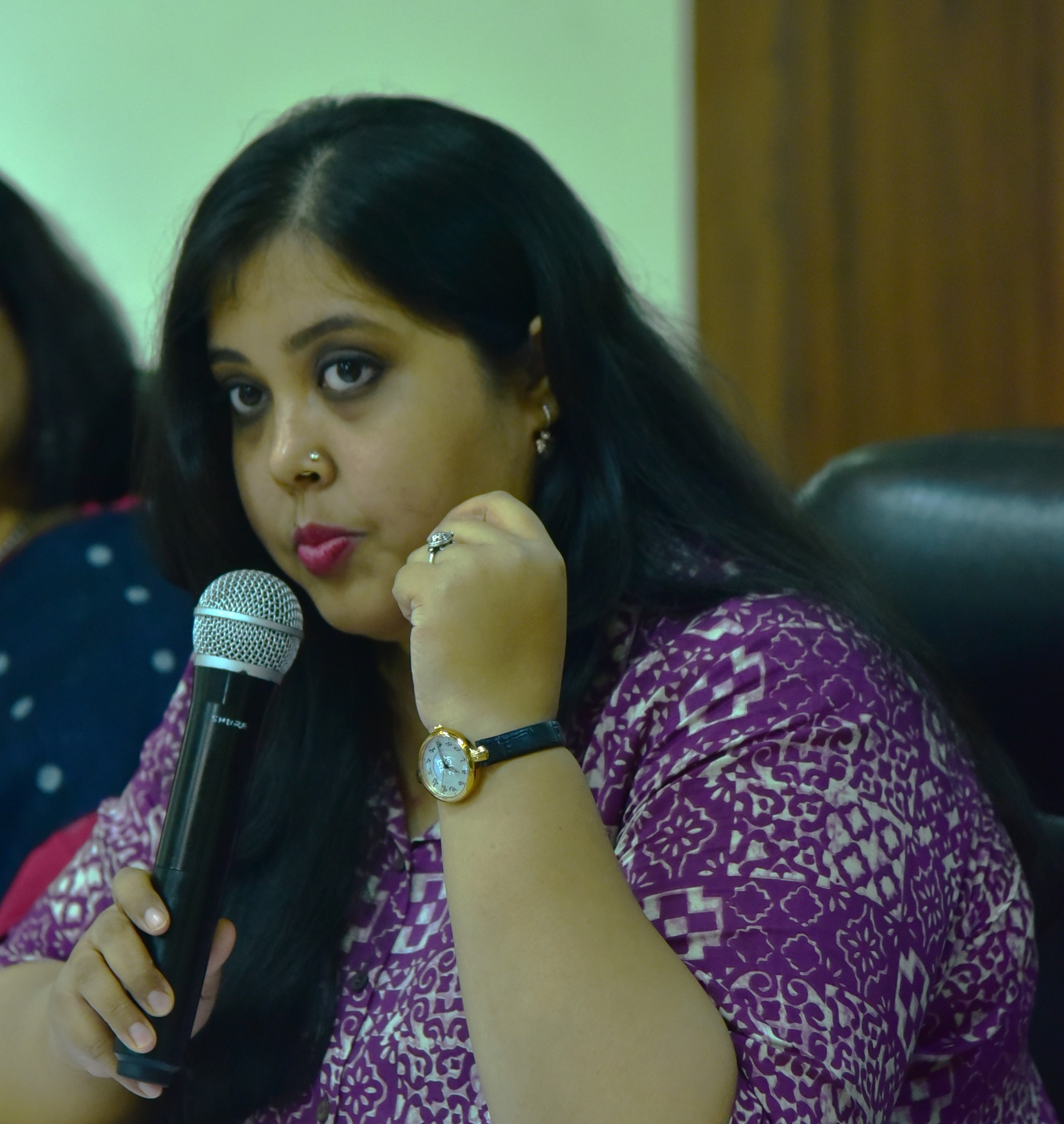-
CENTRES
Progammes & Centres
Location
Bangladesh’s domestic political climate remains highly charged as it heads for election in 2024 despite nationwide protests.

Amidst the nationwide protests by the Opposition parties, the Bangladesh Election Commission has announced 7 January 2024 as the date of the upcoming parliamentary election. Through the 12th general election, Prime Minister Sheikh Hasina seeks to remain in power for a fourth term to further consolidate her legacy of being the longest-reigning Prime Minister of Bangladesh. However, the domestic political climate is far from conducive at the moment, to enable an easy victory. National and international media are describing Bangladesh to be at the ‘tipping point’, as protests, strikes, blockades, and violence intensify in the face-off between the Bangladesh Awami League and the Opposition parties.
Following the announcement of the election dates on 15 November, mayhem broke out in several districts of the country including Chattogram, Dhaka, Chandpur, Ghazipur, Sylhet, Noakhali, and Bogura. During the 48-hour blockade that was subsequently imposed by the Opposition parties—Bangladesh Nationalist Party (BNP) and Jamaat-e-Islami—vehicles were vandalised and a passenger train was set on fire at the Tangail Railway Station. Naturally, several passengers as well as drivers suffered injuries and burns.
National and international media are describing Bangladesh to be at the ‘tipping point’, as protests, strikes, blockades, and violence intensify in the face-off between the Bangladesh Awami League and the Opposition parties.
This is a culmination of a series of protests that have broken out in several parts of the country in the months counting up to the election. On 28 October, the BNP organised a massive protest rally demanding the resignation of Prime Minister Hasina. To ensure a large turnout, organisational measures were undertaken to bring in activists and supporters to Dhaka. However, the rally turned violent after the Opposition protesters allegedly attacked the residences of the Chief Justice and other judges and set fire to vehicles. The police opened tear gas, fired rubber bullets, and attacked the protesters with rods, batons, and sound grenades. There were also reports of the police raiding the homes of Opposition activists, “indiscriminately arresting and detaining hundreds, including the activists’ family members.” Consequently, one police officer was killed and 41 others were injured including several journalists. In the aftermath, while the BNP maintained that the rally had been peaceful until the police opened teargas, the ruling party held that “The BNP-Jamaat are terrorists. The BNP is a terrorist party, which they proved yet again.”
Many Opposition party activists have been arrested, and the BNP has pledged that it will boycott the January 2024 election if Prime Minister Hasina does not resign and a neutral caretaker government is not installed to conduct the elections. This demand was first placed by Jamaat-e-Islami, the largest Islamic party in Bangladesh, in June after being banned for almost a decade from contesting elections.
In 2011, the Supreme Court of Bangladesh decreed the constitutional provision mandating an “elected government to transfer power to an unelected non-partisan caretaker administration to oversee a new parliamentary election on completion of its term, as illegal.” Therefore, although the BNP proclaims that the scope for installing a caretaker government still exists within the current constitutional framework, the Hasina government continually cites the unconstitutionality of this practice.
The Chief Election Commissioner and Election Commissioners Appointment Act is the first of its kind in the entire subcontinent and will serve to make the election commission more impartial and capable.
In recent years, the Awami League government has also undertaken a number of legal procedures to ensure democratic elections. These include the enactment of the Parliament Election (Electronic Voting Machine) Rules of 2018, the Delimitation of Constituencies Act of 2021, and the Chief Election Commissioner and Election Commissioners Appointment Act of 2022. The Chief Election Commissioner and Election Commissioners Appointment Act is the first of its kind in the entire subcontinent and will serve to make the election commission more impartial and capable. The Conduct Rules for Political Parties and Candidates of 2008 and the Election Conduct Rules of 2008 have also been amended to make elections more fair, inclusive, and credible.
Despite the warning that elections may be boycotted, it is perhaps due to these legal measures, the confidence of winning thrice in a row, or the dearth of a prominent face in the Opposition that there seems to be a “persistent sense of optimism” within the ruling party and the Election Commission that polls will be held. Accordingly it latter has proclaimed a detailed election schedule by which the appointment of 66 returning officers and 592 assistant returning officers has been finalised. The last date for the submission of nomination papers was 30 November. Prospective candidates have been selected between 1–4 December and those chosen have the option to withdraw their candidature until the 17th of this month. Respective symbols will be handed on 18 December and the campaign shall run till 8 am on 5 January 2024. The Chief Election Commissioner Kazi Habibul Awal promised a conducive atmosphere for free polls across the 42,000 polling stations and 262,000 booths and stated that necessary measures to ensure transparency and credibility are in place. While the optimism of these institutions responsible for the election is certainly reassuring, its practical implementation given the volatile scenario on the ground is not without doubt.
As the Awami League attempts to maintain a calm pallor despite the domestic turbulence, international dynamics might yet deepen the crease in its brow. The United Nations Human Rights Office of the High Commissioner (UNHRC) in its report on 31 October, expressed that, “We are deeply concerned by a series of violent incidents during ongoing protests in Bangladesh. As the country heads towards elections, we call on all political actors to make clear that such violence is unacceptable and to avoid any statements or actions that could constitute incitement to violence.”
The US did not invite Bangladesh to its Democracy Summits and its most recent measure was a restriction on the issuance of visas for any Bangladeshi individual, believed to be responsible for, or complicit in, undermining the democratic election process in Bangladesh.
Amongst Bangladesh’s bilateral partners, the United States (US) has long been vocal about its priority to ensure democratic elections in Bangladesh through both amicable and coercive means. In 2021, the US imposed sanctions over allegations of human rights abuse on seven former and current high-level officials of Bangladesh’s Rapid Action Battalion, to ensure their accountability. Meetings have also been held between the American Ambassador to Bangladesh, Peter Haas, and the families of the victims of alleged abductions, including the family of BNP leader, Sajedul Islam Sumon. The US did not invite Bangladesh to its Democracy Summits and its most recent measure was a restriction on the issuance of visas for any Bangladeshi individual, believed to be responsible for, or complicit in, undermining the democratic election process in Bangladesh.
The European Union (EU) has recently announced that it will not deploy a full election observer team to Bangladesh, given budgetary restrictions and the absence of “necessary conditions”. This proclamation by the EU has further validated the claims of the Opposition that the polls would not be free and fair. It is interesting to note in this context that currently the US is the largest export destination for Bangladesh’s Ready Made Garment (RMG) industry and accounts for 21.50 percent of its total exports. The EU is its second-largest export destination for the RMG industry. Taking into account the discontent of both parties with Bangladesh’s electoral scenario, it remains to be seen how trade dynamics will be affected if the ruling party continues to be in power post-elections or if there is a government swap.
The European Union (EU) has recently announced that it will not deploy a full election observer team to Bangladesh, given budgetary restrictions and the absence of “necessary conditions”.
Compared to the West, the Asian powers, China and India, which are Bangladesh’s largest and second-largest trading partners, respectively, are exhibiting much more restraint in their reaction to the Dhaka elections. While they maintain that they too seek free and fair elections in the South Asian country, China has stated that it will back the Bangladesh government against external interference. India understands that putting “too much” pressure on the government would strengthen fundamentalist forces within the Opposition. It has accordingly requested the US to refrain from doing the same as it realises that regional stability will be at stake. Sharing the longest land boundary with Bangladesh, India is appreciative of the Hasina government’s iron hand in dealing with terrorism, which has largely contributed to stabilising insurgencies in its Northeast. India is, thus, respectful of the democratic process in Bangladesh and asserts that it is the latter’s domestic concern.
Bangladesh’s rapid economic growth, its locational advantage of being the land connection between South and Southeast Asia, and its position at the peak of the Bay of Bengal, overlooking major shipping routes, has made it a credible partner for many Indo-Pacific countries. Thus, stability within Bangladesh has become critical for regional stability and its internal discord does not augur well for the rest of the Indo-Pacific.
Sohini Bose is an Associate Fellow at Observer Research Foundation
The views expressed above belong to the author(s). ORF research and analyses now available on Telegram! Click here to access our curated content — blogs, longforms and interviews.

Sohini Bose is an Associate Fellow at Observer Research Foundation (ORF), Kolkata with the Strategic Studies Programme. Her area of research is India’s eastern maritime ...
Read More +